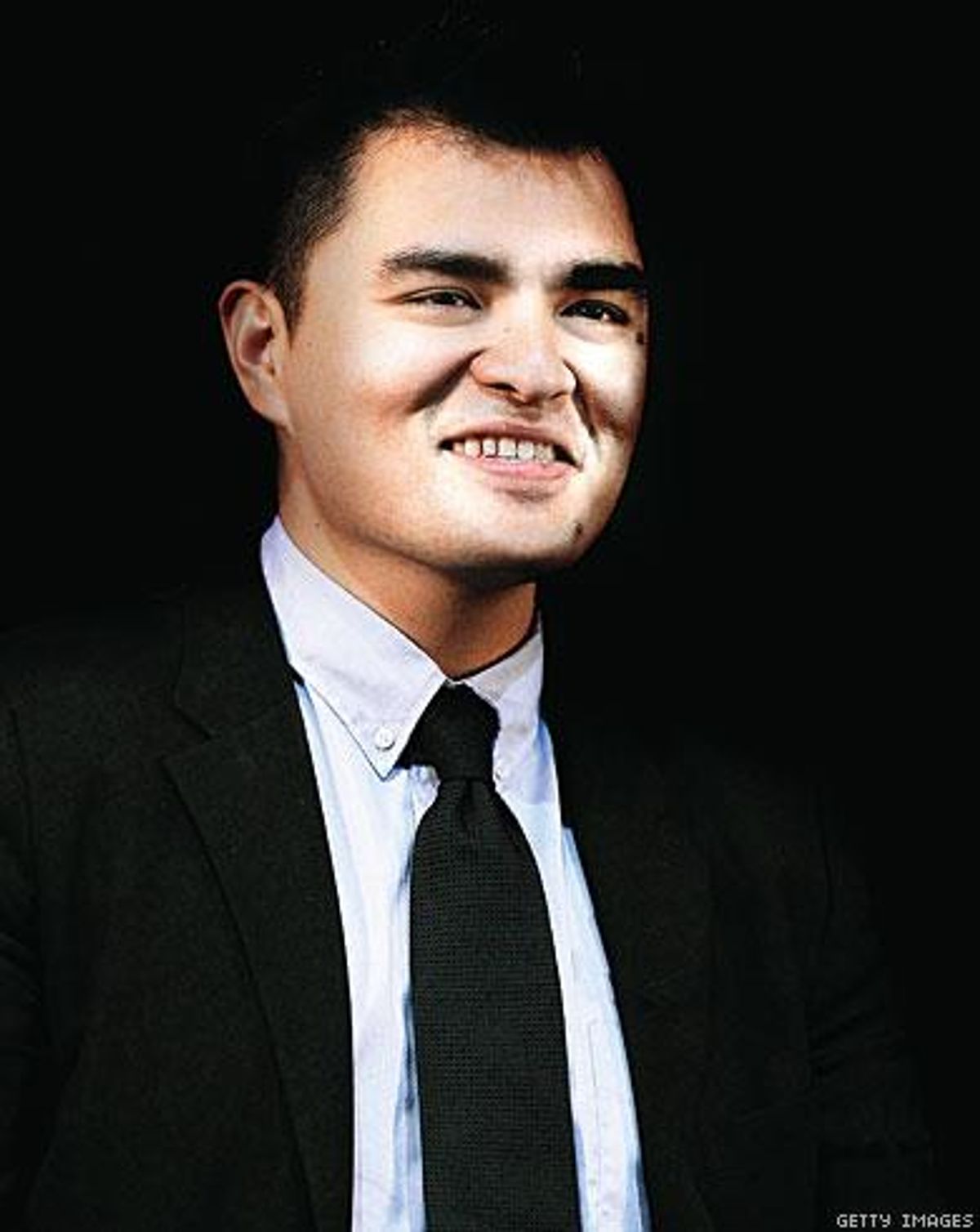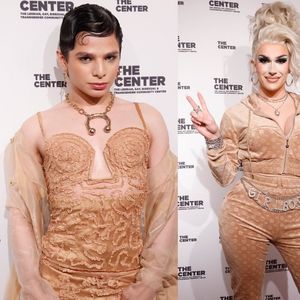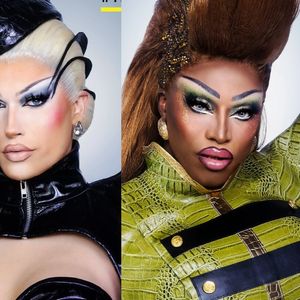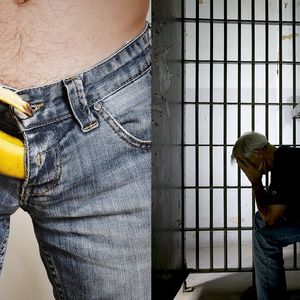
CONTACTStaffCAREER OPPORTUNITIESADVERTISE WITH USPRIVACY POLICYPRIVACY PREFERENCESTERMS OF USELEGAL NOTICE
© 2024 Pride Publishing Inc.
All Rights reserved
All Rights reserved
By continuing to use our site, you agree to our Private Policy and Terms of Use.
When 12-year-old Jose Antonio Vargas set off from the Philippines' Ninoy Aquino International airport bound for California, he had no idea that two decades later he'd touch off a firestorm that stretched from TheNew York Times to D.C. to the border of nearly every Southern state. That's because earlier this year, Vargas, a Pulitzer Prize-winning journalist, came out in the Times -- not as gay (he did that when he was still in high school) but as an undocumented immigrant.
Coming out as someone who is in the U.S. illegally, the journalist took legal and social risks. And though the Department of Homeland Security says illegal immigration has actually plunged two years in a row, Vargas spoke to the hopes and dreams of about 11 million other immigrants still hoping to find a path to U.S. citizenship.
"It's been a very heady couple of weeks," Vargas admits. He's flooded with mail from people like himself. "The most emotional I've gotten ... has been reading these stories. The biggest irony here is, this is America where you can dream as big as you want, right? And the laws are created in such a way they dampen the dreams, whatever those may be, and there's something incredibly just tragic about it."
The media, Vargas insists, "really has to play a big role" in the immigration conversation. "There was a report from the Immigration Policy Center a couple of weeks ago or so that said something along the lines of 'undocumented immigrants ended up paying $11.2 billion in local and state taxes last year.' Do you see that figure being cited anywhere? I've been paying taxes since I've been working."
His mother sent him to live with his grandparents, both naturalized citizens of the U.S., to give him a better life. She told him to tell people he was going to Disneyland if they asked, and he never saw her again. His grandfather forged his Social Security card and Vargas -- who felt he had to work hard to earn his citizenship -- began to rely on what he calls the "21st-century underground railroad."
"I could not have made it, I could not have been able to do what I did, if it wasn't for my high school principal and my high school superintendent and my choir teacher," says Vargas of the people who kept his secret and helped him along the way. "And the guy at The Washington Post, one of the senior managers, basically saying, 'It doesn't matter that you're undocumented -- the law doesn't make any sense. Keep going."
He didn't do what his grandfather wanted, either. Vargas said he couldn't marry a woman to gain citizenship.
"I think coming out as gay was the truth of my life," he says. "I wasn't going to live that other lie. That would have been too much for me to handle."
Hiding his immigration status caused Vargas no end to his worry. After his reporting team won a Pulitzer Prize, the journalist's grandmother called, worried that people would now find out. Vargas ran to the bathroom sobbing.
"This where it parallels with being in the closet about being gay ... there are so many moments, I think, in the past few years that I've had to deal with this in which I never felt quite pleasant at the moment. I wanted so much to enjoy my moment, just winning a part of that prize was a really big deal for me. I really couldn't enjoy it or understand what it was because all I was thinking was, Oh, my God, is it OK that I won this? The more successful I got, the more afraid I got. I actually remember sitting on that freaking toilet seat, and just thinking to myself ... Could I be the only person who's so afraid of their own success? Are they going to take it away?"
That's one reason Vargas came out in the end. "It's going to be a very tough few months. I don't know what's going to happen. People are going to call me names. They've already started doing that. But there's something about living honestly. I feel a sense of relief ... a sense of individual freedom, because of that."
Today, the journalist is turning his attention to his new organization Define American, which is encouraging dialogue about immigrants and why they come to the U.S.
As police in Alabama refuse to follow the state's new immigration law and thousands of protesters come out as undocumented on Georgia's capital steps, it's hard not to see we're on the precipice of something big. "The timing for us couldn't have been more perfect, I think," Vargas says. When his Times essay came out, "it actually became the most shared article on Google that week. Undocumented immigrant, which is not really a sexy phrase ... was trending on Twitter for the whole day. There's been a tipping point."
He's taking a cue from the gay rights movement too.
" I actually think the immigrant rights community has a lot to learn from the LGBT rights community," he says. The tipping point for LGBT rights, he says, came via technology, especially in the wake of Prop 8 losses. "A lot of those rallies that were against that happening, happened on Facebook, and were organized on Facebook, and organized on Twitter. Americans really leveraging these new tools to tell a story are really going to be important for us."
Vargas says, "We American come out to each other all the time. It's just a matter of how carefully and respectfully are we really listening and watching each other? I think that's what's interesting about using coming out as like a bridge."
Vargas surprised even some of his gay friends by coming out: "They didn't even know that I was undocumented. I was out to them as gay, but I was not out to them as undocumented." He says he's taking a lead from James Baldwin, a man who was black and gay before either was popular, as he focuses on immigration issues.
"We have to figure this out. This is not black America or white America, this is one America. Illegal immigration is not just about undocumented immigrants. Illegal immigration is about all of us. And if there's one point that I want to drive home -- there's one point that I think elevates the conversation and takes it out of the immigration ghetto that it's been in -- I think it's that."
His hope is that other immigrants -- gay or straight -- won't have to face the challenges he's had. "I hope here comes a time when this is not going to be a barrier to success, and it's not a barrier to dreaming as big as you want to dream. You know, after all, this is what this country is about."
Don't Miss the Complete Series: These eight groundbreaking LGBT men and women are shaping their industries -- from fashion to science -- and, in the process, they're changing our very world.
deliciousdiane
Want more breaking equality news & trending entertainment stories?
Check out our NEW 24/7 streaming service: the Advocate Channel!
Download the Advocate Channel App for your mobile phone and your favorite streaming device!
From our Sponsors
Most Popular
Here Are Our 2024 Election Predictions. Will They Come True?
November 07 2023 1:46 PM
17 Celebs Who Are Out & Proud of Their Trans & Nonbinary Kids
November 30 2023 10:41 AM
Here Are the 15 Most LGBTQ-Friendly Cities in the U.S.
November 01 2023 5:09 PM
Meet all 37 of the queer women in this season's WNBA
April 17 2024 11:24 AM
Which State Is the Queerest? These Are the States With the Most LGBTQ+ People
December 11 2023 10:00 AM
These 27 Senate Hearing Room Gay Sex Jokes Are Truly Exquisite
December 17 2023 3:33 PM
10 Cheeky and Homoerotic Photos From Bob Mizer's Nude Films
November 18 2023 10:05 PM
42 Flaming Hot Photos From 2024's Australian Firefighters Calendar
November 10 2023 6:08 PM
These Are the 5 States With the Smallest Percentage of LGBTQ+ People
December 13 2023 9:15 AM
Here are the 15 gayest travel destinations in the world: report
March 26 2024 9:23 AM
Watch Now: Advocate Channel
Trending Stories & News
For more news and videos on advocatechannel.com, click here.
Trending Stories & News
For more news and videos on advocatechannel.com, click here.
Latest Stories
George Takei releases kids' book about his childhood in internment camp
April 17 2024 3:18 PM

PLUS
ExclusivesTodrick Hall on surviving the rumors and remembering where he came from
April 17 2024 2:33 PM

Pride
Yahoo FeedHow The Pride Store celebrates National Tea Day: A tale of two brews
April 17 2024 2:14 PM
'Parents' Rights' movements forget families have the right to read LGBTQ+ books
April 17 2024 10:15 AM
This gay man had to flee Ghana after a violent attack. He’s finally been granted asylum
April 17 2024 9:17 AM
Ohio court temporarily blocks ban on gender-affirming care for trans youth
April 16 2024 5:33 PM
Trending stories
Most Recent
Recommended Stories for You

Diane Anderson-Minshall
Diane Anderson-Minshall is the CEO of Pride Media, and editorial director of The Advocate, Out, and Plus magazine. She's the winner of numerous awards from GLAAD, the NLGJA, WPA, and was named to Folio's Top Women in Media list. She and her co-pilot of 30 years, transgender journalist Jacob Anderson-Minshall penned several books including Queerly Beloved: A Love Across Genders.
Diane Anderson-Minshall is the CEO of Pride Media, and editorial director of The Advocate, Out, and Plus magazine. She's the winner of numerous awards from GLAAD, the NLGJA, WPA, and was named to Folio's Top Women in Media list. She and her co-pilot of 30 years, transgender journalist Jacob Anderson-Minshall penned several books including Queerly Beloved: A Love Across Genders.















































































